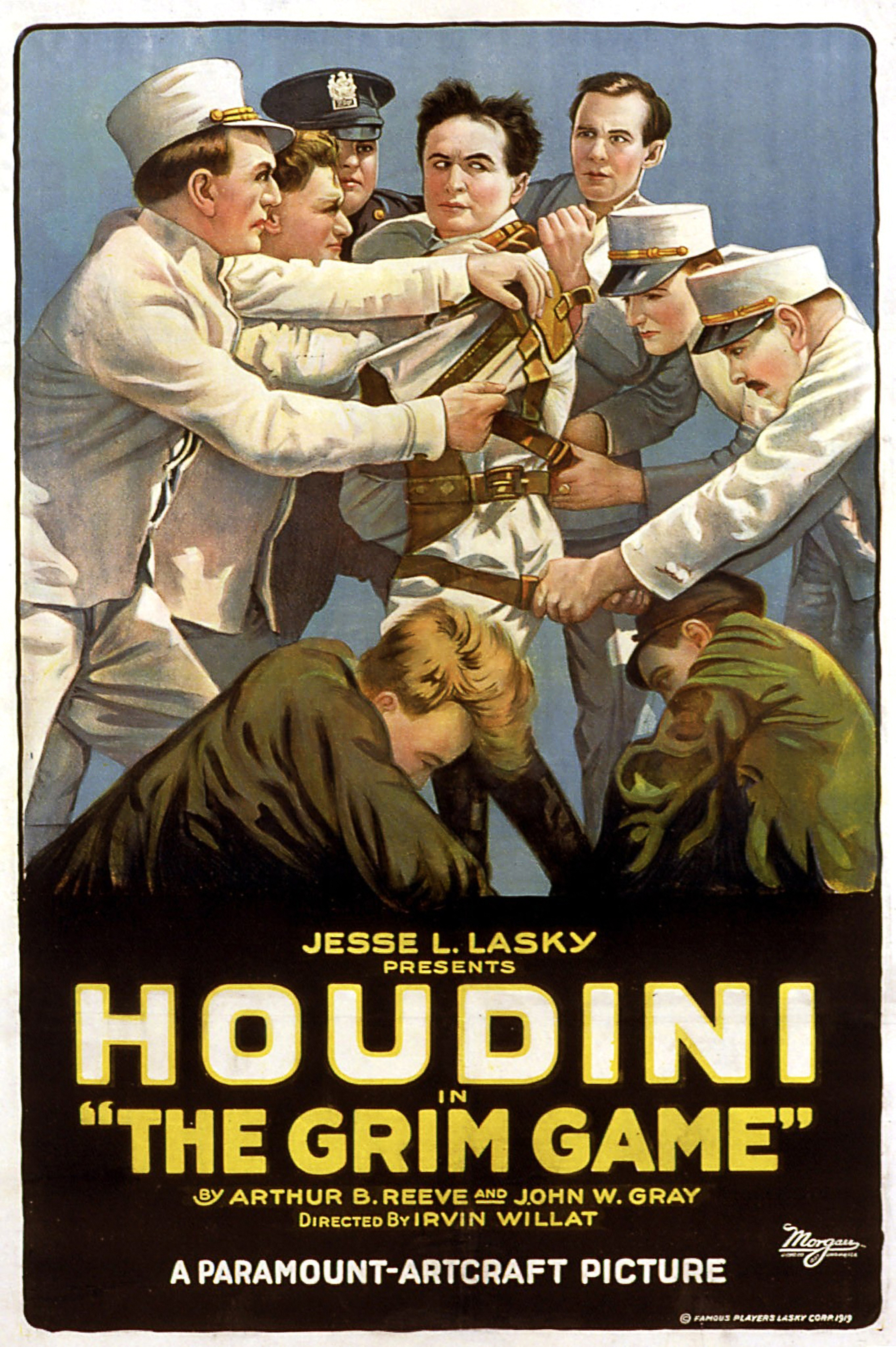 The incongruity of Sir Arthur Conan Doyle being a spiritualist has always been a poser. He created a classical character whose entire premise is his rationality, while he himself was a sucker for the irrational. Granted, Holmes believed that if you removed all the likely possibilities, then the unlikely possibilities were the correct ones, but it is still a great leap from the difficult-to-understand to the magical. But Doyle spent much of his time pursuing that magical.
The incongruity of Sir Arthur Conan Doyle being a spiritualist has always been a poser. He created a classical character whose entire premise is his rationality, while he himself was a sucker for the irrational. Granted, Holmes believed that if you removed all the likely possibilities, then the unlikely possibilities were the correct ones, but it is still a great leap from the difficult-to-understand to the magical. But Doyle spent much of his time pursuing that magical.Harry Houdini, on the other hand, was anything but magical. Much of his career was spent debunking the spiritualists of the day. Of course, Houdini knew first hand that the most amazing events ultimately consisted of tricks and secrets. Houdini didn't use magic to make his great escapes: he used hidden tools and a lot of practice. There were no ghosts in his life.
That Conan Doyle and Houdini got on as friends is one of those great pairings of history that are at once puzzling and at the same time oh-so-right. Margaret Eby writes:
Their friendship illustrates the warring impulses of intellectual life—the need to pick apart things to eliminate falsehoods, and the heartfelt want to be bamboozled sometimes, to acknowledge some sort of truth with a capital T... The gap between them is why both great detective stories and great magic tricks work. What are magic tricks anyway except for pretty little fictions about doves evaporating into thin air and smiling assistants being sawn in half without consequence, humans casually violating the insufferably strict laws of science?
The article is Hocus Pocus.
Poof!

No comments:
Post a Comment